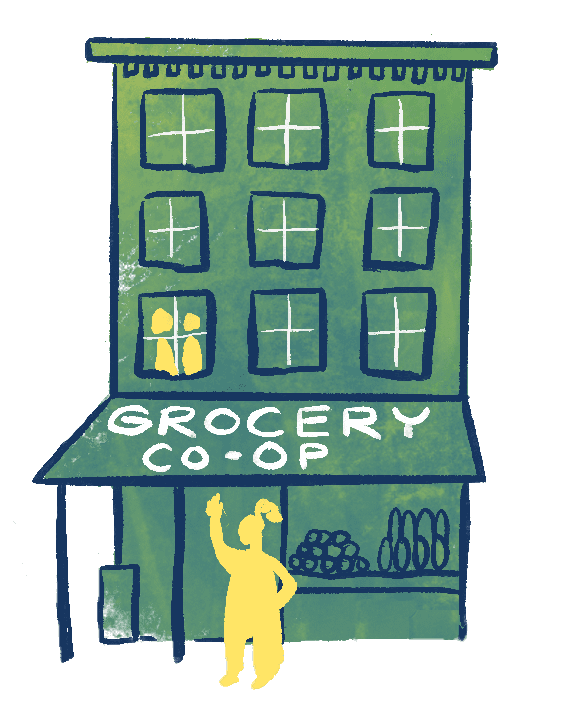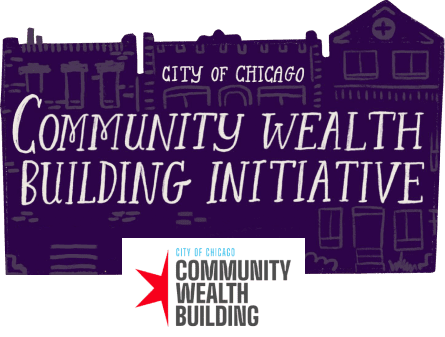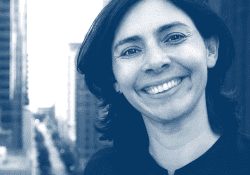Community Wealth
Building In Chicago
The City’s Investment
As part of the Chicago Recovery Plan, the Department of Planning and Development (DPD) and The Mayor’s Office of Equity and Racial Justice (OERJ) launched the Community Wealth Building (CWB) Initiative—a $15 million investment in CWB enterprises, infrastructure, and capacity-building.
The CCWBE Hub
The Chicago Community Wealth Building Ecosystem (CCWBE) is the ‘hub’ for Research & Convening for worker-owned cooperatives, community land trusts, limited equity housing cooperatives, community investment vehicles, and other ecosystem partners. CCWBE aims to advance models of local, democratic, and shared ownership and control throughout Chicago but especially on the south and west sides of our city. The CCWBE hub does this by convening community wealth building (CWB) working groups, developing tools and other resources, connecting and building the capacity of ecosystem partners, conducting research and communicating the impact of community wealth building. CCWBE is currently being incubated at the Center for Urban Economic Development (CUED) at the University of Illinois Chicago.
















